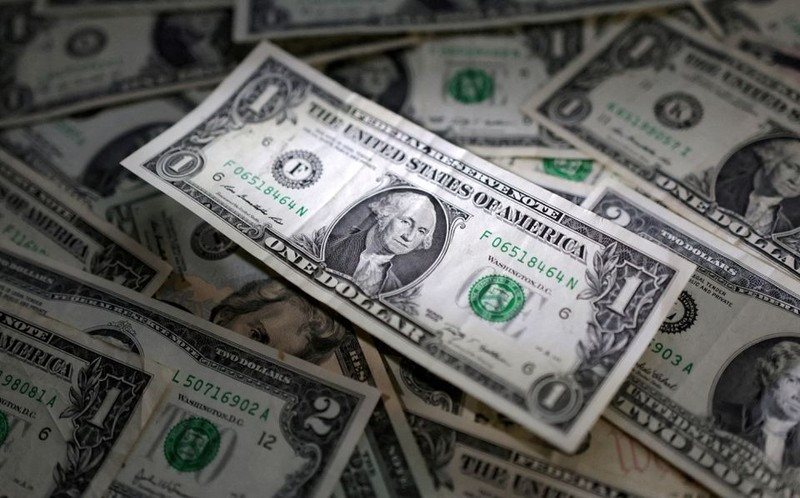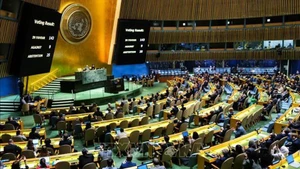On a street corner of Sixth Avenue, in Manhattan, downtown New York City, a special clock - a public debt metre, was hung up. It updates the US national debt continuously in real-time.
In January, the world's leading economy hit its borrowing limit of 31.4 trillion USD, prompting the US Treasury Department to apply special measures so that the government could continue to cover its operations. The US Secretary of the Treasury Janet Yellen warned that the agency has not had much room to implement such special measures.
According to calculations by the US Treasury Department, the US government will not be able to continue to meet all financial obligations from the beginning of June, if Congress does not raise the ceiling or suspend the public debt limit. The US Congressional Budget Office (CBO) also estimated that tax revenuesthrough the end of April were less than the CBO's prediction made in February, so the US Department of Treasury will likely "run out of money" at the beginning of next June.
The debt ceiling is the limit at which the US government can borrow to meet its financial obligations. When debts hit the ceiling, raising the debt limit to a higher level can be decided by Congress and must be approved by both the House and Senate. Since 1960, the US Congress has raised the public debt ceiling 78 separate times, most of which went quite smoothly. However, the months-long stalemate in negotiations between Democratic and Republican lawmakers has raised concerns about the possibility of the US government falling into default.
Yellen repeatedly reaffirmed the view that if Congress does not raise the debt ceiling, the consequences for the economy will be very serious. She also noted that fallinginto default will erase the achievements that the US hasgained with great efforts in the recovery process,following the COVID-19 pandemic, shaking the position of the world's No.1 economy. Losing jobs, facing payments, high mortgage costs and credit increases are losses that Americans have to bear.
The International Monetary Fund (IMF) also warned of severe consequences if the US could not pay its debts. A shaken confidence in the world's most important financial system could trigger a global recession. Therefore, economic managers in other countries have been closely monitoring the financial performance of the US and hope that US officials will make the right decisions to promptlyprevent possible risks, to the still fragile recovery of the global economy.
The US House of Representatives, dominated by Republicans, has approved a proposal to increase the national debt limit, but it comes with the condition of drastic cuts in government spending, which has been opposed by President Joe Biden and Democrats. Republicans agreed to raise the debt ceiling, but demanded cuts in spending in defence and education sectors, setting stricter requirements for social welfare programmes and withdrawing many of the plans of the Inflation Reduction Act initiated by President Biden.
The White House said the Republican bill has no chance of becoming law because President Biden will never force middle-class families and workers to bear the burden, due to tax breaks for the rich, as proposed in the bill above. President Biden and leading lawmakers from both the Democratic and Republican parties discussed face-to-face, but the two sides remained uncompromising. The meeting on the public debt ceiling between President Biden and senior Republican representatives scheduled for May 12 has been postponed.
Both have proved quite tough in recent negotiations, but according to observers, facing the urgency of the current situation, Democrats and Republicans will still compromise and make certain concessions to avoidpushing the US government into default, with unpredictable consequences.
















